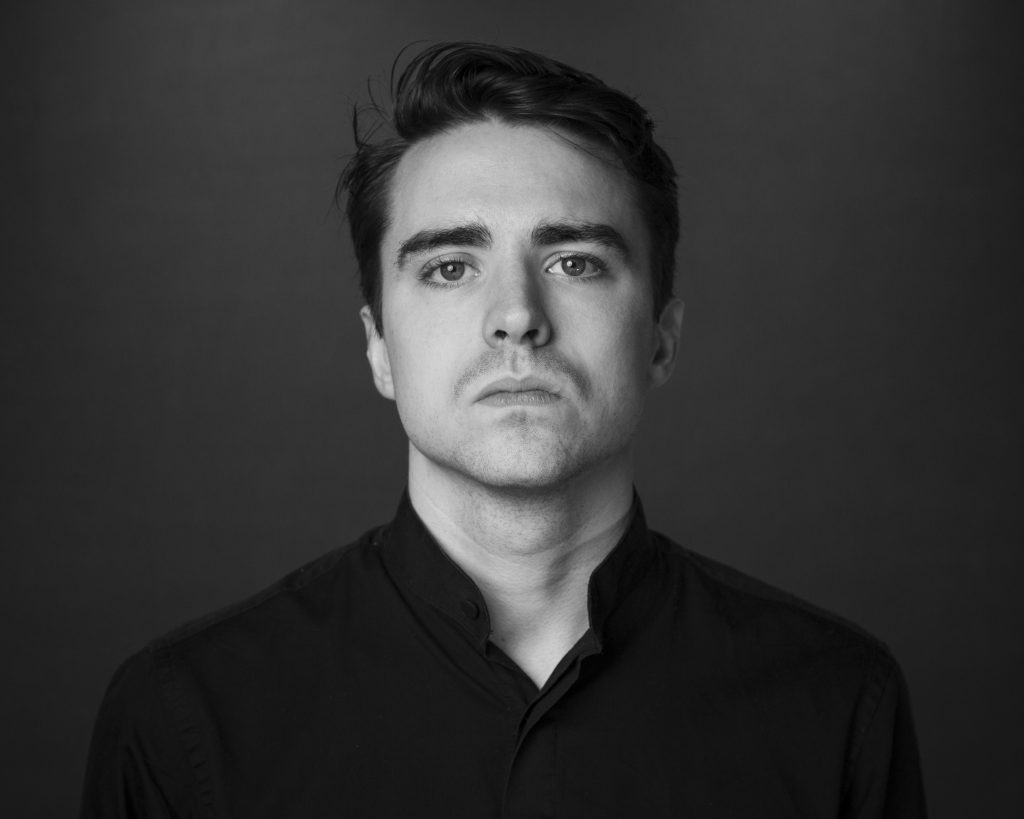Published on
Updated on
Parker Callister is one of eight Resident Composers selected to participate in the 2025 Mizzou International Composers Festival. MICF Resident Ensemble Alarm Will Sound will perform Callister’s composition if it broke at 7:30 p.m. on Saturday, July 26, at Columbia’s Missouri Theatre. The concert is free and open to the public.
Callister is a composer, music technologist, and guitarist from Ithaca, NY.
His music draws influence from electronic and noise music while also operating in a contemporary music idiom. Compositional interests include close-mic amplification, spectral harmony, and the tactility of sound. He has had his music performed by notable artists including Peter Sheppard Skaerved, Li-Chin Li, as well as the Unheard//Of Ensemble, OSSIA New Music, line upon line percussion, ECCE Ensemble, and Yarn/Wire.
Callister’s primary mentors have included Ricardo Zohn-Muldoon, Michael Hersch, Evis Sammoutis, Robert Morris, and Carlos Sanchez-Gutierrez. He has received commissions from the Baltimore Integrated Arts Society, line upon line percussion, OSSIA New Music, the Music Educators of Lansing, NY, and choreographers Laurie MacFarlane and Ruben Ornelas. In May of 2024, he received his PhD in Music Composition from the Eastman School of Music. Currently, he teaches at SUNY Oneonta as a lecturer in music and audio production.

We recently chatted with him via email.
What is your musical background? When and how did you begin composing?
I began playing guitar when I was 11 and played in rock bands throughout middle school, high school, and college. Playing in these bands inspired me to start writing music of my own and got me interested in learning other instruments such as bass, drums, banjo, and piano (sort of). Where I grew up in Ithaca, NY, there is a non-profit booking organization called the Ithaca Underground that took off around the time I started high school. They would bring in regional, national, and sometimes international acts of all kinds and bill them alongside local acts at various local bars, community spaces, and record stores. I got involved playing in bands that would occasionally open these shows and eventually worked as a volunteer for the organization for many years. They would book all kinds of music, some of it veering into very exciting, experimental territory. Going to these shows during such formative years had a serious impact on my musical tastes and really informed who I am as a music-maker, as well as what kind of spaces, audiences, and communities I’m writing my music for.
How did you hear about MICF?
I have known of MICF for a long time. I couldn’t tell you how I even heard about it initially.
Tell us about your piece that will be performed at MICF. What should we listen for?
My piece, if it broke, is inspired by the overused saying “if it ain’t broke, don’t fix it.” If it did break, then who would fix it? How would it be fixed? Or was it actually broken long ago? It recycles a sequence of musical phrases multiple times, changing the timbre and textures of these ideas gradually, erasing certain gestures over time, and allowing others to emerge. Therefore, the work acts as a sort of “themes-and-variations.” During the writing of this work, I was constantly thinking of an elaborate, but broken, Rube Goldberg machine, constructed from complex systems of levers and pulleys that had been stretched too thin, overworked, and neglected.
What does it mean for you to work with an ensemble like Alarm Will Sound?
I was initially drawn to Alarm Will Sound because of their ambitious, polystylistic approach to music-making. Their arrangements of Aphex Twin’s music are probably what drew me to them. Getting to work with them means an opportunity to work with artists in the contemporary classical music space that work hard to integrate other musical traditions into their repertoire. This approach is something that aligns with my own creative practice as I didn’t encounter what is typically considered “classical” music until much later in my musical journey.
What do you hope to learn from your MICF experience?
I think getting to hear various ways one can handle the chamber orchestra as an ensemble is going to be a major takeaway for me from this festival. Chamber orchestras are angular, dynamic, and fun to write for but can also be quite challenging. Getting to see how others manipulate the ensemble to work with their distinct voices will help guide my own understanding of how my musical language can best be expressed in this context.
For more information on Parker Callister, visit his website.